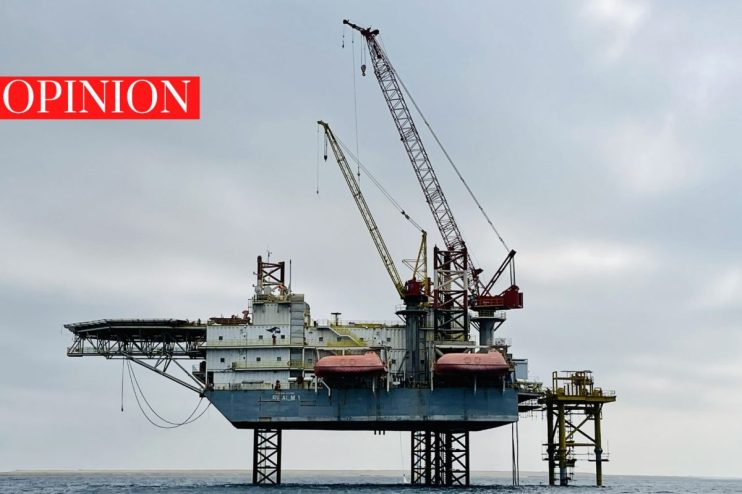A new oil field in the North Sea won’t be forever, but it’s a good decision for now

We were always going to need the new Rosebank oil field in the North Sea, even if the black “gold rush” is coming to a close, writes Cameron Smith
Britain will need some oil and gas for years to come – but increasingly less as we head toward net zero. There’s no point turning off the taps early only to import supplies from elsewhere, but we do have to be realistic about the North Sea.
The fossil fuel reserves in the oilfields north of Scotland are dwindling fast, and extracting more will not solve our current dilemma.
The decision to approve offshore drilling at Rosebank, the largest remaining untapped oil and gas field off the coast of Shetland, is necessary. The sizeable investment will secure 1,600 jobs, add £24bn to the economy, and provide almost a tenth of the UK’s oil production up to 2030. But it will produce much less gas, only enough to cover twice Aberdeen’s daily needs.
For now, it’s the right decision to sustain the North Sea oil and gas industry that will be crucial to reaching net zero. We need these skilled workers to deliver carbon capture and storage, build a new hydrogen industry and sustain our growing offshore wind industry. But it means little for Britain’s energy security or people’s bills.
In reality, the vast majority of the oil extracted by Rosebank will be exported – 80 per cent of the UK’s North Sea oil is shipped overseas. This is partly because we lack refineries, so some will eventually return to our shores, but not all. Similarly, the North Sea only provides half of the gas Britain needs to keep the lights on and heat homes, and this new field will do little to change that.
Every barrel of oil and cubic meter of gas produced at Rosebank will be sold on international markets dominated by petrostates and malign actors like Vladimir Putin. It won’t be enough to drive prices down, and we certainly won’t be immune from global price shocks. Simply put, there is no longer a path to energy security or prosperity through fossil fuels in the North Sea. The “black” gold rush is over.
Instead, the answer to our energy challenge is drastically reducing our reliance on oil and gas.
Britain is still one of the most gas-dependent countries in Europe, behind Belarus, Russia and Italy. We also have the draughtiest homes, meaning we pay more for wasted energy. These two reasons are why the energy crisis hit the UK so severely. The government is making some progress: Rishi Sunak has committed to reforming the grid to quickly connect new, cheap renewables and rants for heat pumps are now more generous. The de facto ban on onshore wind in England is also coming to an end. However, we’re not yet doing enough to halt our reliance on fossil fuels.
The UK’s renewable auction failed to secure a single offshore wind farm this year after investors’ concerns weren’t heard. Last week, Sunak pared back action energy efficiency targets and the 2030 ban on new petrol and diesel cars. While he was right that the UK is a world leader on climate change, these decisions will leave us using more fossil fuels for longer.
The Conservatives are right to reject calls to “Just Stop Oil”. However, its policy can’t be “Just Oil” either. They need to build on their environmental record, which helped make the UK a leader in offshore wind and nearly halved our carbon emissions since 1990. Because driving ahead on North Sea oil and gas alone while delaying net zero policies is a recipe for energy insecurity.
